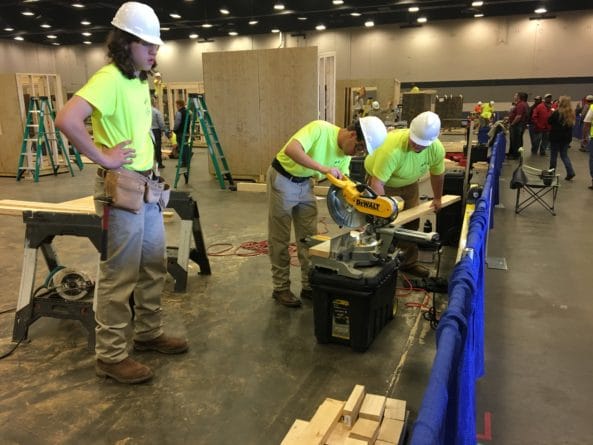Unemployment rates in Mississippi are at historic lows meanwhile, jobs in the state remain near historic highs. The Mississippi Department of Employment Security’s most recent unemployment records at 4.7% are the third lowest levels ever recorded in the state.
“The growth is happening in the area of manufacturing, but it is not just in that area,” said Dr. Mimmo Parisi Professor and Executive Director of the National Strategic Planning and Analysis Research Center and Mississippi State University. “There are also what we call skilled service jobs in the healthcare and professional areas and now there is this new sector in data, so coding is now a part of our new and fast-growing jobs in the state.”
Parisi said that most of those jobs do not require four-year college degrees and that if people have good training and some basic education they could earn anywhere from $35K to $70K a year. However, Parisi said education is still extremely relevant.
“What makes education valuable is the additions of industry credentials. Having an education without an industry credential is like being halfway through,” Parisi said. “So, you can get a bachelors degree, but if you don’t have the skills that the industry requires for your job, you can have all the education in this world, but would be unable to find a job.”
Parisi said the other part is how to sustain the continued demand for a skilled workforce. He said the answer lies with apprenticeships which allow for a constant connection with the industry and connecting people with potential employers.
“People seem to focus on preparing, but workforce development also includes asking how do you connect these people?” Parisi said. “We are one of the best in the country at helping people who have been through the education process to then be connected directly with available jobs.”
Parisi referred to Mississippi’s coding academies where students are taught technology and computer coding skills at a young age, saying the earlier that children are prepared for future jobs the easier it will be for them to receive industry credentials.
“This combination of industry and the academic credential is what we call the new workforce currency,” Parisi said. “You can’t have one without the other. The thing about workforce is that it is not just preparing, it is also about connecting and about sustaining. I think that Mississippi has found the right recipe where preparing, connecting, and sustaining is really what we do so well in this state. I expect this upward trend to continue to soar.”




